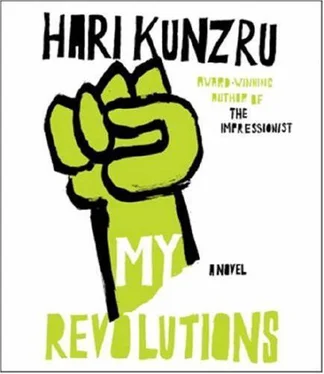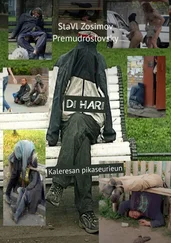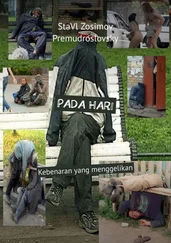CONFRONTATION! CONFRONTATION! CONFRONTATION!
CONFRONTATION dramatizes our condition, which is struggle.
CONFRONTATION gives a lead to the apathetic. CONFRONTATION is a revolutionary role model for disaffected youth.
CONFRONTATION is a bridge from protest to resist — ance.
CONFRONTATION helps combat so-called mental
illness and disorders of the will.
CONFRONTATION gives you insight.
CONFRONTATION is your path to revolutionary self- transformation.
Action is movement, movement is change and process. Accelerate the process: CHOOSE YOUR TARGETS! ACT NOW! CONFRONTATION! CONFRONTATION! CONFRONTATION!
We worked together, scrawling phrases, calling them out to one another, little fragments of polemic we delivered like orators, taking pleasure in the force of the words, their potential to make change. Often these documents were just a record of arguments, each line bitterly fought over, picked to pieces and reconstructed. This one had come easily, I remember, like making up a song.
On the evening of the riot at Grosvenor Square, I was moved to a cell of my own. Wrapped in a thin, scratchy blanket, I spent the night dozing fitfully. In the morning I was given a fried-egg roll and a cup of tea, then transferred to Bow Street magistrates’ court. My trial, such as it was, lasted under five minutes. A dog-faced policeman described how he’d bravely tackled me as I was running toward the embassy to throw a missile. I was, he said, looking savage and shouting words it would embarrass him to repeat before the court. When he attempted to effect an arrest, I had punched him in the face. I shouted out that he was a liar. The judge, a lantern-jawed man with a drinker’s swollen nose, sentenced me to six weeks’ imprisonment. I was taken directly to HMP Pentonville.
* * *
Cold spray spatters against my face as I lean over the side rail of the ferry. The water, far below, is gray and choppy. Beside me a pair of girls, Sam’s age or a little younger, are telling each other how sick they feel, taking drags on a shared cigarette. By now Miranda and Sam will know there’s something wrong. Miranda will be phoning the bookshop, trying to get God to pick up. Walking carefully so as not to slip on the wet metal of the deck, I go inside, where it smells like all cross-Channel ferries, that queasy cocktail of lager and snack foods and exhaust fumes and cleaning products that doesn’t quite mask the acid stink of vomit seeping from the toilets.
On impulse I feed some change into one of the arcade games in the corridor. Lights flash and writing races across the screen, too fast to read. The rules are incomprehensible. Colored blobs race around. Little dots and spinning things, which look to me like pieces of fruit, blip in and out of existence, seemingly at random. I press buttons, push and pull the joystick. It’s impossible to tell what I’m controlling, which of the little creatures is me. YOU DIE! says the machine. YOU DIE! TRY AGAIN!
The last time I played a computer game was at Christmas, when Sam’s not-boyfriend Kenny came over with a PlayStation. I’ve always liked Kenny. He’s awkward and slightly nerdy, which is why he’ll never ascend to the position in Sam’s affections he so transparently craves. Sam likes sporty boys — uncomplicated squash or tennis players who can drive her to the pub and talk to her about jobs or holidays. Kenny has a mop of dyed hair and a collection of T-shirts bearing the names of Japanese garage bands. Occasionally Sam allows him to escort her to the cinema, but whenever I ask if they’re “together,” she rolls her eyes and adopts a long-suffering expression.
When am I going to see you again, Sam? And what will you think of me when I do? You’ve always lived in a bounded, knowable world: a triumph for Miranda, I suppose, keeping you safe all these years. I find it very hard to think of you as nineteen; that’s almost the age I was when I went to prison. You seem so young, young enough for me to wish I wasn’t the one smashing up your happy home. I can’t ask you not to hate me, or not to be frightened. I think the best I can hope for is that one day I’ll be able to sit down with you and explain. You’re too old to be saying to me, as you did recently, that you weren’t “interested in politics.” You want to be a lawyer. Well, a lawyer needs to know something about politics, even a corporate lawyer who just wants to climb the ladder, to buy the things her friends buy and go to the places they go. You’re lucky that politics feels optional, something it’s safe to ignore. Most people in the world have it forced on them. To be fair, I suppose you’re just a child of your time. Thatcher’s gone, the Berlin wall’s down, and unless you’re in Bosnia, the most pressing issue of the nineties appears to be interior design. It’s supposed to be the triumph of capitalism— the end of history and the glorious beginning of the age of shopping. But politics is still here, Sam, even in 1998. It may be in abeyance, at least in your world. But it’s lurking round the edges. It’ll be back. You ought to give Kenny a chance, by the way. He’s a decent kid.
I realize I’m forming words with my mouth, muttering to Sam under my breath as I feed the last of my change into the machine. A voice comes over the ship’s public address system, saying we’re entering port. We’ve arrived in France. As I line up on the narrow stairs down to the car deck, I still can’t stop myself. Explanations, justifications, like a crazy old man. Logic says there has to be a beginning, a first moment of refusal. I’m not sure. There’s the usual Oedipal tangle: Mummy-Daddy-me. There was my brother and Kavanagh the junk man, the Russians and nuclear war. There was my need to be better, more decent, to deserve . None of these. All of them.
My earliest memories are of red bricks and high green hedges, of being walked past endless garden walls down roads that always brought us to the shop or the white pebbledash and well-oiled gate of our house, number-three-avon-close . Depending on how you looked at it, we were either on the way into or out of London, part of its great westward sprawl. In the mornings a line of men walked past the end of our street on their way to the station. In the evenings they walked back again. On Saturday mornings the men came into our shop, Parker’s Electrical, to buy fuses and lightbulbs, staying to turn over the price tags on transistor radios and what Dad always called “labor-saving devices”: vacuum cleaners and kettles, gadgets for the wives. I remember feeling slightly cheated that Dad didn’t go into London to work. I wanted to have more to do with “town,” where things mattered, where the goods we sold were made.
I often asked why we didn’t change the name of the shop. Our name was Carver. Why wasn’t it Carver’s Electrical? Dad told me it would only cause confusion. Litter, teddy-boys, sons who asked stupid questions: confusion could take many forms and my father was enemy to them all. It was, I think, the reason he moved Mum out of Kennington when he came home from the war. Ruislip was, above all, an orderly place.
Where we lived was distinctive for only one reason: the airfield. During the war, as I learned at school, gallant Polish airmen had flown out of RAF Northolt to fight the Germans. Down by Western Avenue there was a memorial to them, with lists of battles and difficult names, all z s and w s. A little farther away was the American airbase, USAF South Ruislip. When you went past on the 158 bus, the conductor sometimes called out, “Next stop Texas!” as a joke. Every day military transport planes flew directly over our house, the rumble of their engines cutting through the sound of the Light Programme as we ate our tea in the kitchen. Like the other Avon Close children, I sometimes went out to watch them land, taking turns at peering through a hole in the hedge that masked the airfield from the road.
Читать дальше












